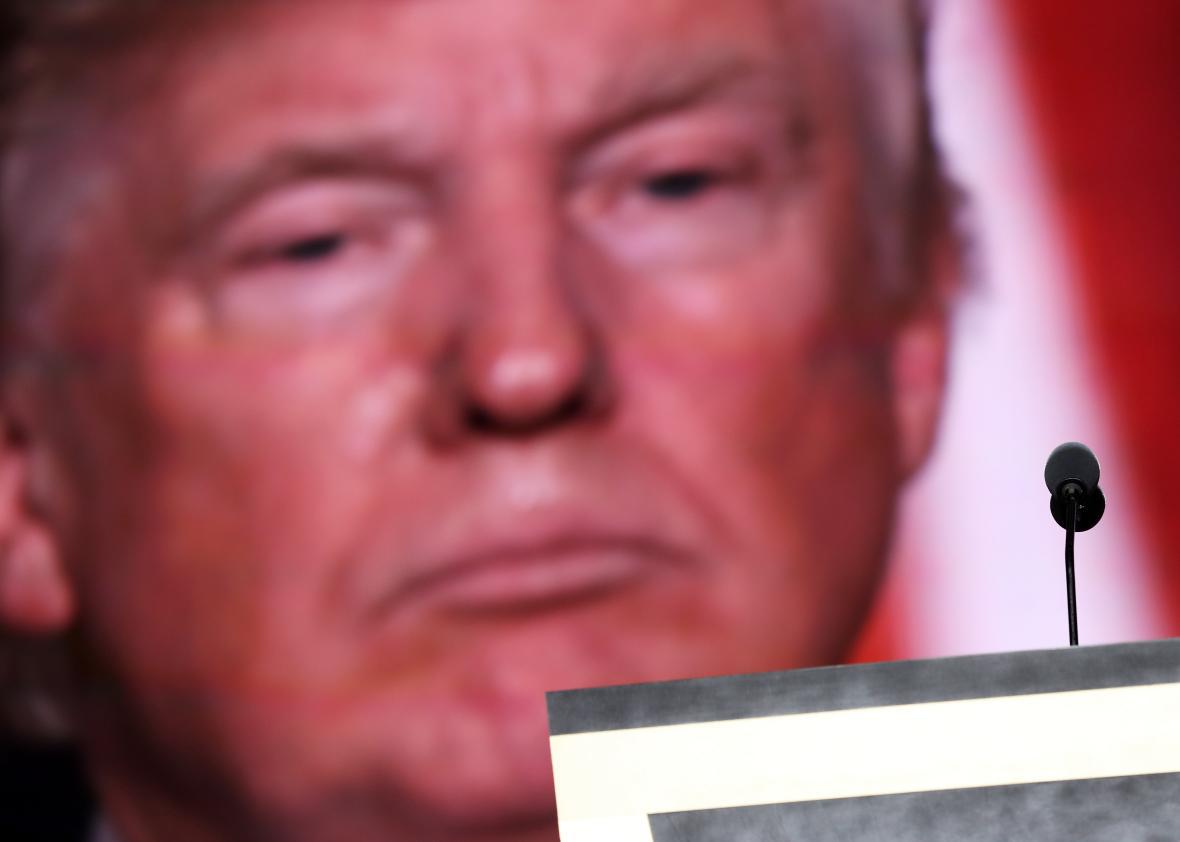The fact that we all knew it was coming didn’t make it any less grotesque. The takeover of the Republican Party by a dangerous demagogue and his disgracefully supportive family has been discussed and chewed over ad nauseam. But the particular nature of Donald Trump’s convention speech, with its almost comically overstated (and utterly distorted) fearmongering, was particularly alarming for people who care about quaint notions like democracy and liberty. And yet, the speech also displayed for viewers the reasons that Trump is unlikely to win in November. For all the talk of his political jujitsu, he doesn’t have the skill or self-control of a truly adept autocrat.
Trump’s speech left no doubt that he is an uninhibited authoritarian who would wreak havoc on the country and the world if elected. When the text of Trump’s speech leaked Thursday afternoon, pundits focused, correctly, on how dark it was, and how terrifying a picture it painted of present-day America. And, indeed, the written speech was gloomy and apocalyptic. But it was nothing compared to the speech as delivered by a red-faced, angry madman. Taking a page from Rudy Giuliani’s playbook, Trump yelled out some of his lines, scowled with abandon, and relished only in the doom and gloom he was selling.
Trump’s plan for the country became clearer Thursday night: He is painting the United States as a country essentially on the verge of a breakdown, and thus a country that needs to take extraordinary measures to be rescued. Hence the focus on crime, terrorism, and social decay; hence the misleading statistics and dark warnings about the future. The goal is to win the election, but it is also to set up a narrative about the country Trump would be taking over. A state of emergency calls for extraordinary measures.
The problem for Trump, and the saving grace for the world, is that he isn’t quite good enough to sell his message. The address was horrifyingly bleak and scary; it was also much too long, much too dark, and much too unfocused. Trump’s shouting was jarringly out of sync with other passages of the speech; his utter lack of policy specifics will be noticed even by people who do not write about policy for a living; and his tone prevented the ostensibly lighter passages from registering. The speech—which ran until well past 11 p.m. on the East Coast—is not the last thing you want to watch before bed. It had such strong fascist undertones, and so many foreboding passages, that it kept reminding me of Ridley Scott’s famous “1984” ad for Apple.
This inability to temper himself, intimately connected to his inability to control his temper, is what has hamstrung Trump all along. Trump couldn’t just make a strong case about stopping immigration. No, he had to call Mexicans rapists and question the impartiality of an American judge. He couldn’t just speak out against ISIS. No, he also had to call for a total ban on Muslims coming to the United States. Although Trump generally stuck to the text of this speech, and didn’t go off-script as some of his advisers and anxious Republicans surely feared, he still turned in a typically loony Trumpian performance, because that’s him. There is nothing else. If there were, Hillary Clinton would be in trouble.
And that’s the really scary thing. It’s worth considering what Trump has unleashed, not just in terms of nativism and bigotry, but in proving that white nationalism has a real base. The fear, then, isn’t just that Trump could win, which he could, despite his low odds. The fear is that a better, cooler, more polished version of Trump could rise in his wake. That is a prospect, and a danger, that will not disappear no matter what happens in November.
